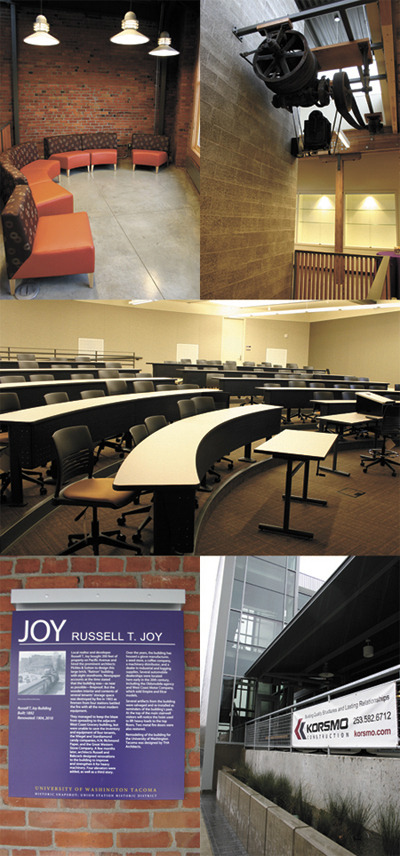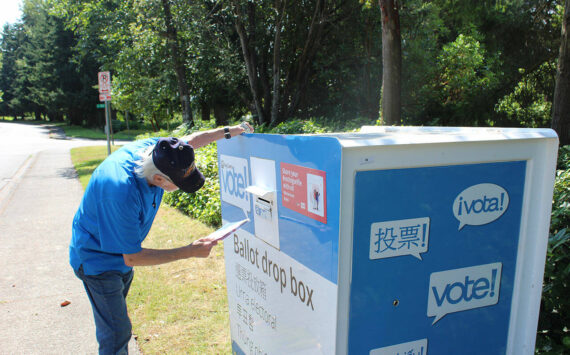University of Washington Tacoma officials announced Tuesday the Green Building Certification Institute has awarded LEED Platinum certification — the highest possible, most rigorous certification in the LEED system — to the school’s Russell T. Joy Building. Erected in 1892 and named after its first owner, the Joy Building was the last of the historic structures along Pacific Avenue to be repurposed for the UW Tacoma campus. It opened last spring, easing the university’s need for classroom space and providing retail storefronts on the first floor facing Pacific Avenue.
“The Tacoma campus is a leader for the UW in green building,” said Clara Simon, sustainability manager in UW’s Capital Projects Office. The state mandates that all state-funded new construction and major renovations be designed, constructed and operated to at least a Silver LEED certification level. “The Joy Building has earned a rating two levels higher,” Simon said.
“LEED Platinum certification is very difficult to achieve on new construction, and even more difficult for renovations,” added Milt Tremblay, director of facilities and campus services.
Among the many features of the Joy Building that earned it the high rating is a system that captures 90 percent of the rainwater falling on the building and reuses it in planters.
Other sustainable features (among many) include:
- 43.6 percent water reduction during building operations;
- 49.7 percent reduction in energy;
- 100 percent Forest Stewardship Council certified wood used;
- 95.1 percent of construction waste recycled;
- 83.9 percent of building structure reused electrical vehicle recharging station installed;
- 56 secure bike storage locations;
- 22.7 percent recycled content in building materials daylight access in 90 percent of occupied spaces;
- 20.3 percent of materials were purchased within 500 miles green cleaning during building operations sited in an urban density area with community connectivity built on a Brownfield site built near public transportation.
The architect of the renovation was THA Architecture, and the general contractor was Korsmo Construction.







